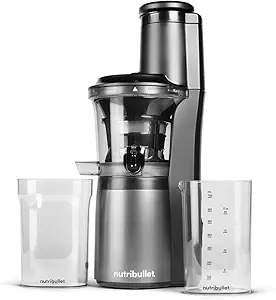The Ultimate Buying Guide for Juicers: How to Choose the Best Juicer for Your Needs
Overview
Juicing is a great way to get essential vitamins and nutrients from fruits and vegetables. However, with so many juicers on the market, it can be overwhelming to choose the right one for your needs. In this guide, we'll go over the different types of juicers, key considerations to keep in mind, important features to look for, prices, tips, and FAQs to help you make an informed decision.
Types
1. Centrifugal juicers: These are the most common and affordable type of juicer. They work by using a blade that spins at high speeds to extract juice from fruits and vegetables. They are best for juicing hard produce like apples and carrots but may struggle with leafy greens.
2. Masticating juicers: These juicers use a slow rotating auger to crush and squeeze juice from produce. They are more expensive but can juice a wider variety of produce including leafy greens and wheatgrass.
3. Citrus juicers: These are designed specifically for juicing citrus fruits like oranges and lemons. They can be manual or electric and are relatively inexpensive.
Key Considerations
1. Yield: Consider how much juice you want to make at once and choose a juicer with an appropriate capacity.
2. Ease of use: Look for a juicer that is easy to assemble, disassemble, and clean.
3. Noise level: Centrifugal juicers can be quite loud, so if you plan to juice early in the morning or late at night, a quieter option like a masticating juicer may be a better choice.
4. Price: Juicers can range from less than $50 to over $500, so consider your budget when making a decision.
Features
1. Pulp control: Some juicers allow you to adjust the amount of pulp in your juice. This is a great feature for those who prefer a smoother or chunkier texture.
2. Multiple speeds: Centrifugal juicers with multiple speeds can better handle a variety of produce.
3. Reverse function: A reverse function can help unclog any produce that may get stuck in the juicer.
4. Juice container: Look for a juicer with a container that fits under the spout and has a spout for easy pouring.
Prices
Juicers can range in price from less than $50 to over $500. Centrifugal juicers are generally the most affordable, while masticating juicers are more expensive. Consider your budget and how often you plan to juice when making a decision.
Tips
1. Clean your juicer immediately after use to prevent buildup and make cleaning easier.
2. Use a produce brush to clean hard-to-reach areas.
3. Experiment with different produce combinations to find your favorite juice recipes.
4. Consider purchasing a juicer with a warranty for added peace of mind.
FAQs
Q: Can I juice leafy greens with a centrifugal juicer?
A: - While centrifugal juicers can juice some leafy greens, they may not extract as much juice as a masticating juicer.
Q: Can I juice wheatgrass with a citrus juicer?
A: - No, citrus juicers are not designed for juicing wheatgrass.
Q: Can I make nut milk with a juicer?
A: - Some juicers have the ability to make nut milk, but not all. Check the manufacturer's specifications to see if this is a feature of the juicer you are considering.











